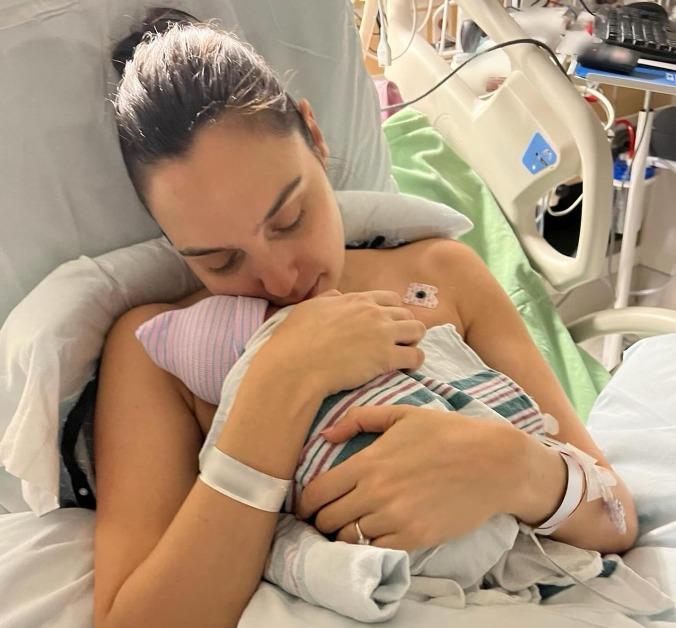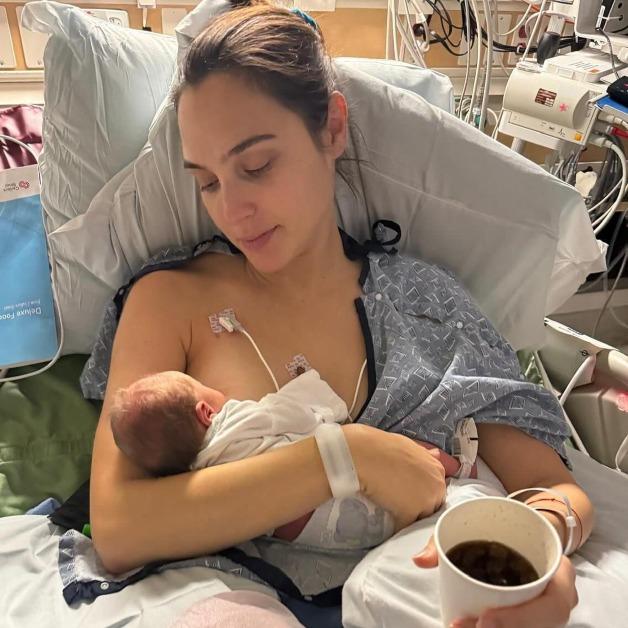Gal Gadot Gives Terrifying Health Update About Complication She Experienced While Pregnant
"I finally underwent an MRI that revealed the terrifying truth."
Published Dec. 30 2024, 11:46 a.m. ET
Pregnancy is supposed to be one of the most exciting times in a person's life. Assuming the baby was planned and everything is lined up and ready to go when they arrive, pregnancy is that long waiting period that allows the body to prepare for birth and all that comes after it. Yet for so many people, pregnancy can be a terrifying and difficult time. This is exactly what happened with Wonder Woman star Gal Gadot.
As she was reflecting on 2024 and all the ups and downs the year brought, she revealed a terrifying health update tied to a pregnancy complication she experienced while expecting her fourth daughter in early 2024. Here's what we know about the complication and how she's doing now.
Gal Gadot gives a shocking health update about a complication she experienced while pregnant.
Gal took to Instagram to reflect on 2024 and delivered some shocking news. The actor wrote, "This year has been one of profound challenges and deep reflections, and I’ve wrestled with how, or even if, to share a personal story. At the end, I decided to let my heart guide me. Perhaps this is my way of processing everything, of pulling back the curtain on the fragile reality behind the curated moments we share on social media."
Saying that she hopes to raise awareness as well, Gal explained that she was diagnosed with a "massive blood clot" in her brain in Feb 2024, during her eighth month of pregnancy with her youngest daughter, Ori. She continued, "For weeks, I had endured excruciating headaches that confined me to bed until I finally underwent an MRI that revealed the terrifying truth. In one moment, my family and I were faced with how fragile life can be. It was a stark reminder of how quickly everything can change, and in the midst of a difficult year, all I wanted was to hold on and live."
Gal was rushed to the hospital and underwent immediate emergency surgery. She added, "My daughter, Ori, was born during that moment of uncertainty and fear. Her name, meaning 'my light,' wasn’t chosen by chance. Before the surgery, I told Jaron that when our daughter arrived, she would be the light waiting for me at the end of this tunnel."
She then shared that she is fully healed today, and thanked the medical team at Cedars-Sinai Medical Center for saving her life. She mused, "The journey has taught me so much. First, it’s vital to listen to our bodies and trust what it’s telling us. Pain, discomfort, or even subtle changes often carry deeper meaning, and being attuned to your body can be life-saving."
Blood clots during pregnancy? Yes, it's a thing.
Gal then went on to share the eye-opening statistic she hoped to raise awareness on: "Awareness matters," she began, "I had no idea that three in 100,000 pregnant women in the 30s+ age group are diagnosed with CVT (develop a blood clot in the brain)."
But is it true that pregnant women are at high risk of blood clots?
Yes, it's true.
CDC reports, "Women are especially at risk for blood clots during pregnancy, childbirth, and the three-month period after delivery." This is for a number of reasons. During pregnancy, blood clots more easily in order to avoid excessive bleeding during labor and delivery. Additionally, increased weight and swelling can increase pressure to the lower extremities, lessening free blood flow into and out of the legs. As the growing belly compresses blood vessels in the pelvis, risks for blood clots in the legs increase.
These blood clots can detach and travel throughout the body's system of blood vessels, potentially lodging somewhere emergent like in the brain, heart, or lungs.
It's vital to know the signs and symptoms in order to protect yourself and to be aware that pregnancy isn't the only increased risk factor for blood clots in women. Hormonal birth control may also increase the risks of blood clots, depending on the type of birth control and your body's reaction to it.


